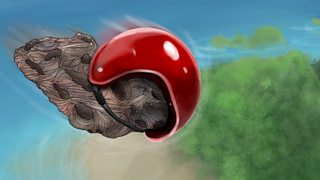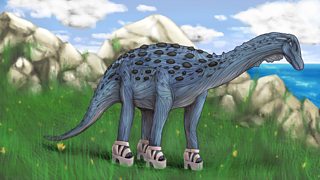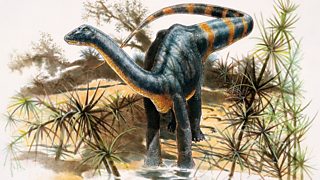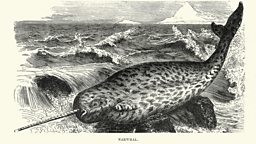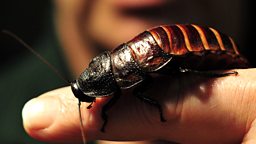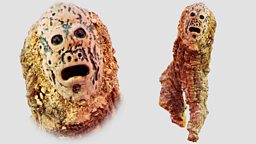Mighty meteorite facts
For thousands of years people have marvelled at the stones that fall from the sky. Meteorites remind us that above the sky is a dynamic, restless universe.
1. Surprise visit
In 1954 in Alabama, a meteorite the size of a grapefruit crashed through a roof, bounced off a radio and hit Anne Hodges as she sat in her living room. Luckily she got away with just bruising and the dubious honour of being the first North American on record to be struck by an extraterrestrial object.

Meteorite close encounters
The stories of the 1795 Wold Cottage meteorite and another near miss in Alabama in 1954.
2. Meteor to meteorite
Meteorites are fragments of rock that fall to Earth from space. A meteor becomes a when it lands.
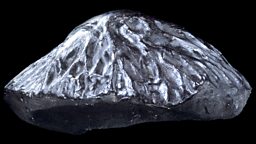
3. Three-teorite
There are three main types of meteorite:
- Stony meteorites - These are made from stony minerals. They contain olivine and pyroxene, which are also common on Earth
- Stony iron meteorites – A mixture of rocky, stony minerals with iron and nickel
- Iron meteorites - Almost solely iron but also with nickel, carbon and sulphur

4. Daily drop
Scientists estimate that 44 tonnes (44,000kg) of meteoritic material falls on Earth each day.
5. Early Egyptians
As early as 3,000 BC in Egypt, people found iron-rich rocks scattered across the dry landscape and realised they were different. The ancient Egyptians used these meteorites to create high status objects such as jewellery that they buried in tombs with important people.
6. Recently in Russia
In February 2013, a fireball streaked through the clear morning sky in Russia's Chelyabinsk region. after the meteor blew apart in the atmosphere resulting in a number of meteorites falling earthwards. One large meteorite landed in a lake near Chebarkul.

7. The big one
The largest known meteorite is the which fell in Namibia in 1920 and is etimated to weigh around 60 tonnes (60,000kg).
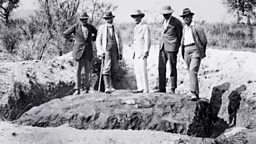
8. Alien invaders?
Venus flytraps were believed to be an alien species because they seemed to grow in places where meteorites were found. It was thought they had been brought to Earth by meteors.

9. Magical mystery
Canada’s Iron Creek meteorite was treated as a sacred object and Native Americans left gifts for it.
The Greek philosopher Aristotle thought meteorites were the product of extreme weather.
Another theory was that meteorites were thrown out of volcanoes. Others believed they were messages from God.

The mystery of meteorites
Brett Westwood presents an introduction to the rocks from space - meteorites.
10. Meteorite market
The buying and selling of meteorite pieces is illegal in South Africa. It’s also illegal to export them from Australia.
11. Deep impact
An asteroid impact on the Guatemalan peninsula around 66 million years ago changed the course of evolution by causing 60% of life on Earth, including the , to become extinct.
12. What are the odds?
The greatest extraterrestrial threat to Earth is thought to come from the asteroid 99942 Apophis.
It has a one in 250,000 chance of hitting the Earth in 2029 and one chance in 300,000 of hitting the Earth in 2036 (due to the uncertainty of its orbit).
It has a diameter of approximately 250 metres and could create an impact crater of around 2-3km in diameter. This would affect an area of approximately 10km around it but it would not have a wider impact on the planet.
Source: Natural Histories
Meteorites
-
![]()
Bad news if you live in Kidderminster and own a greenhouse; an accident prone meteorite is fast approaching...
Dinosaurs
-
![]()
Dinosaur myths, misconceptions and mysteries.
-
![]()
Watch a Natural Histories comedy clip featuring a dwarf dinosaur.
-
![]()
Brett Westwood explores how dinosaurs are influencing our stories, films and science.
-
![]()
Prof Paul Barrett from the Natural History Museum explains how βdwarfingβ affected dinosaurs as well as modern animals.
